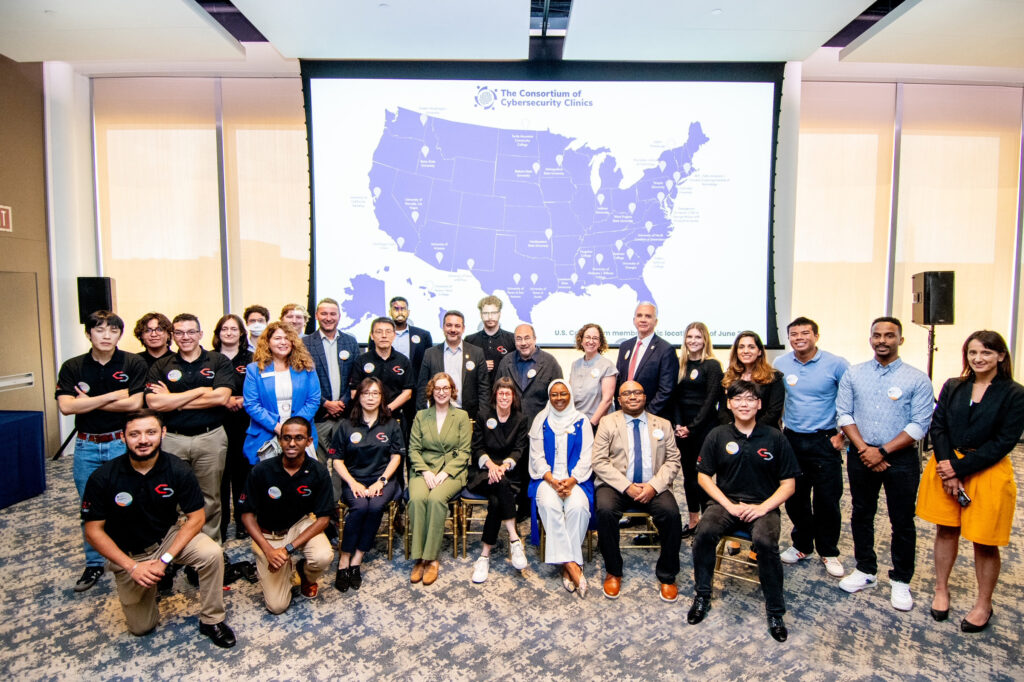More than 30 individuals affiliated with the Consortium of Cybersecurity Clinics attended the June 2024 Cyber Civil Defense Summit in Washington D.C., joining more than 150 additional cyber defenders, academics, and policymakers who share a mission of protecting under-resourced community organizations against cybersecurity threats. This was the second convening of the day-long annual conference — orchestrated by the UC Berkeley Center for Long-Term Cybersecurity (CLTC), which co-founded and co-chairs the Consortium, and made possible with a grant from Craig Newmark Philanthropies.
Consortium representatives engaged throughout the robust agenda, scoped under the theme “Data Driven Resilience.” The Summit’s panels and presentations surfaced a range of valuable insights, including how volunteer-based programs like cybersecurity clinics are essential — but more must be done to provide incentives and fill the talent pipeline.
Read more takeaways from the Summit on the CLTC website:
https://cltc.berkeley.edu/2024/07/18/eight-key-takeaways-from-the-cyber-civil-defense-summit/



